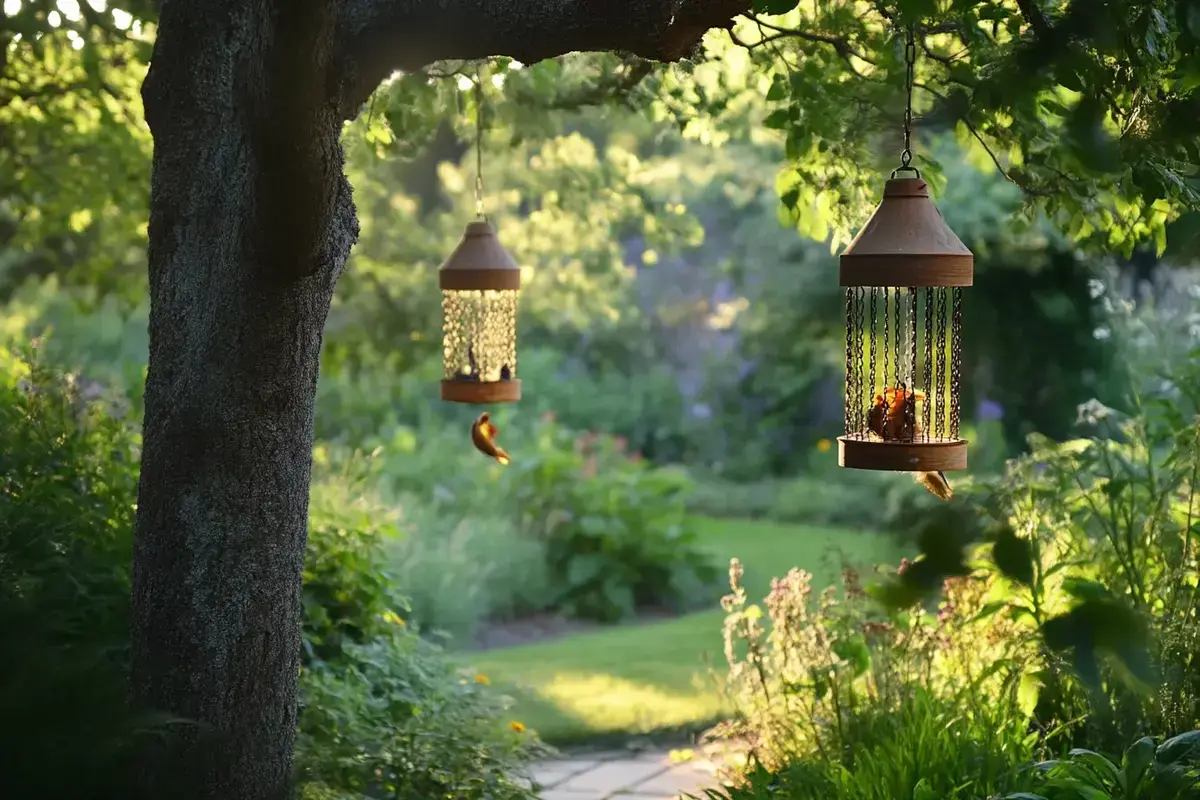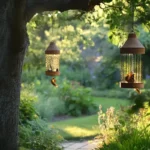In Summary
- 🌲 Ecological Impact of Squirrels: Benefactors of forest regeneration but nuisances in gardens by damaging infrastructure.
- 🐿️ Harmful Behavior of Squirrels: Tendency to steal bird seeds, causing frustration and extra expenses for gardeners.
- 🎢 Using a Slinky: Innovative trick by an American gardener to prevent squirrels from climbing birdhouse trees.
- 🌿 Additional Tips: Selection of specific seeds and use of aromatic herbs and deflectors to protect bird food.
Squirrels, while essential for the ecosystem due to their role in seed spreading, can become real headaches for garden enthusiasts. How to protect bird food without harming these mischievous little mammals? This article explores an original and current solution implemented by an American gardener, who uses a common household item, the Slinky, to protect bird seeds from squirrel raids. Discover how this simple method can help maintain peace in your garden while supporting local wildlife.
Ecological Impact of Squirrels
Squirrels, often seen as merely amusing visitors to our gardens, play a vital role in forest regeneration due to their habit of storing and forgetting seeds. However, when their natural habitat encroaches on human spaces, the consequences can be less than beneficial. Indeed, their presence in our gardens is not without downsides, often disrupting the balance that gardening enthusiasts strive to maintain.
Nuisances Caused by Squirrels
Though cute, squirrels can cause considerable damage. Their tendency to gnaw on electrical wires and tree bark can lead to costly repairs and significant aesthetic damage. Furthermore, they readily attack garden furniture, leaving a trace of their passage that is often frustrating for homeowners.
Combating Seed Theft
One of the most frustrating behaviors of squirrels is their habit of stealing seeds meant for birds. This action not only deprives our feathered friends of essential food but also disrupts the local ecosystem gardeners are trying to support. To counter this, various strategies can be implemented to deter these little thieves, ranging from modifying the types of seeds distributed to physical devices preventing their access to feeders.
The Slinky: An Innovative Solution
Creativity can often solve problems in surprising ways. This is the case of an American gardener who repurposed a popular toy, the Slinky, to protect bird feeders. By wrapping it around tree trunks, this coil effectively prevents squirrels from climbing, while preserving the garden’s aesthetics. This type of approach not only solves the problem but also adds an element of curiosity and playfulness to the garden.
Tips for Effective Protection
Besides the Slinky trick, other methods can complement feeder protection. The use of specific seeds that do not attract squirrels and hanging aromatic herbs around feeding areas are useful strategies. Deflectors, installed on or around feeders, also provide an additional physical barrier. These combined techniques can greatly increase the chances of peaceful coexistence between squirrels and birds in our gardens.
By applying these methods, gardeners can not only protect bird food but also appreciate the presence of squirrels without experiencing nuisances. These creative and wildlife-friendly solutions help maintain an ecological and aesthetic balance in our green spaces.







